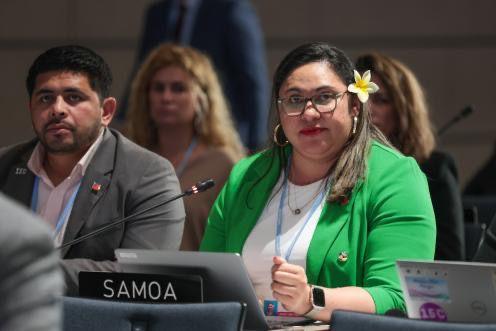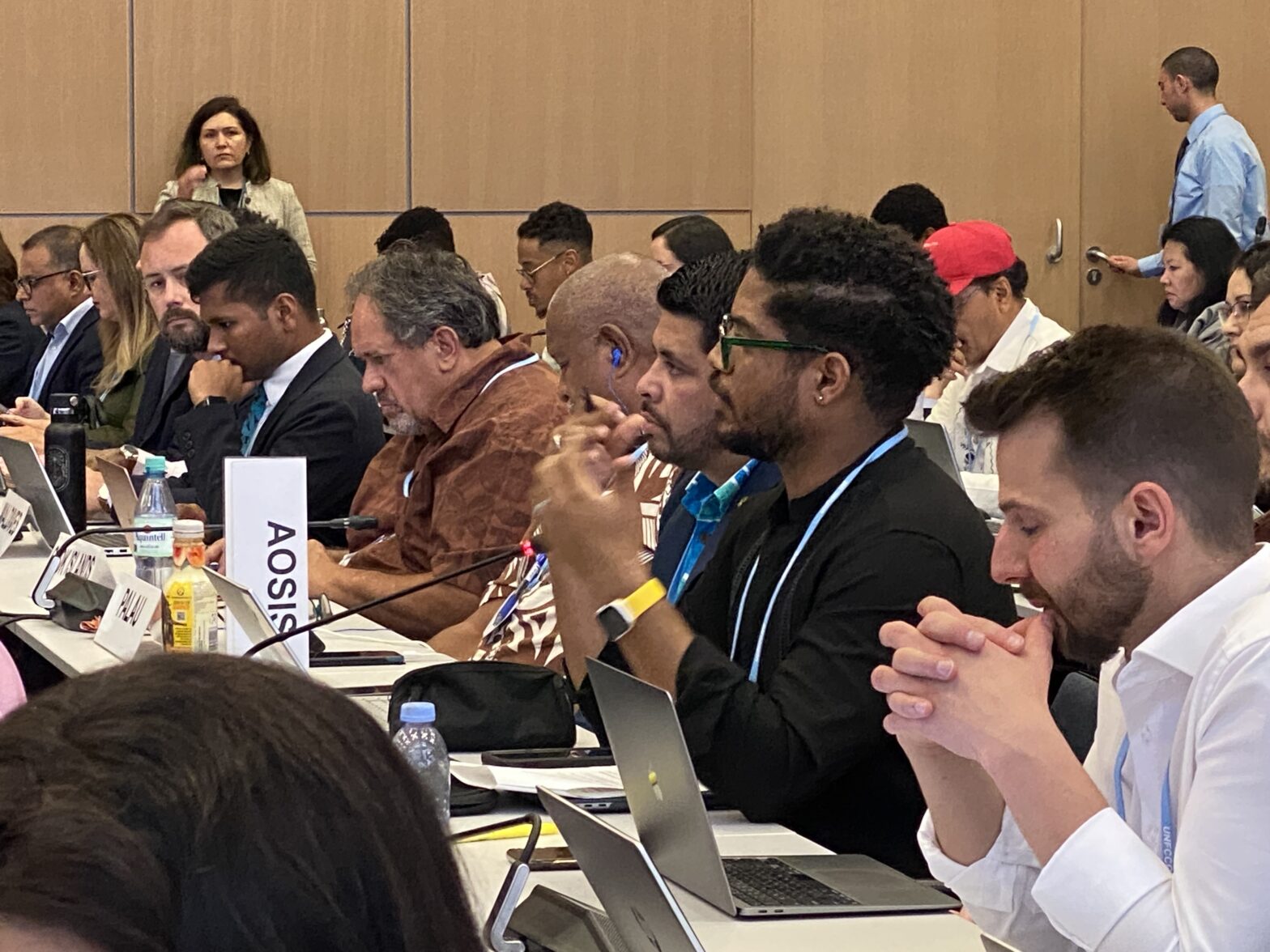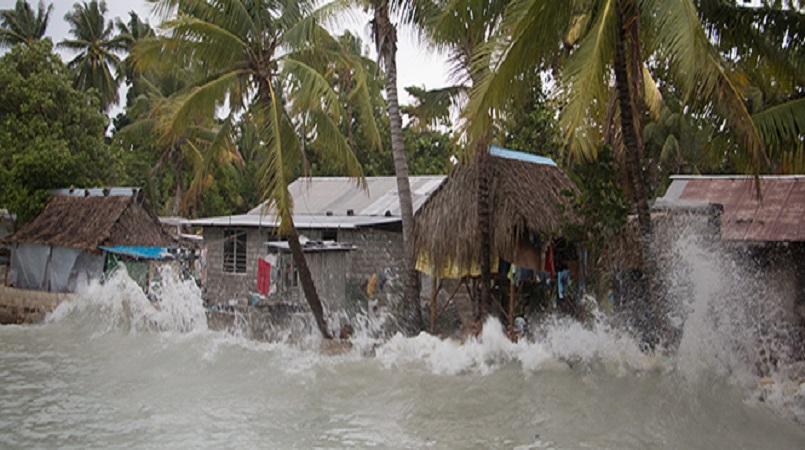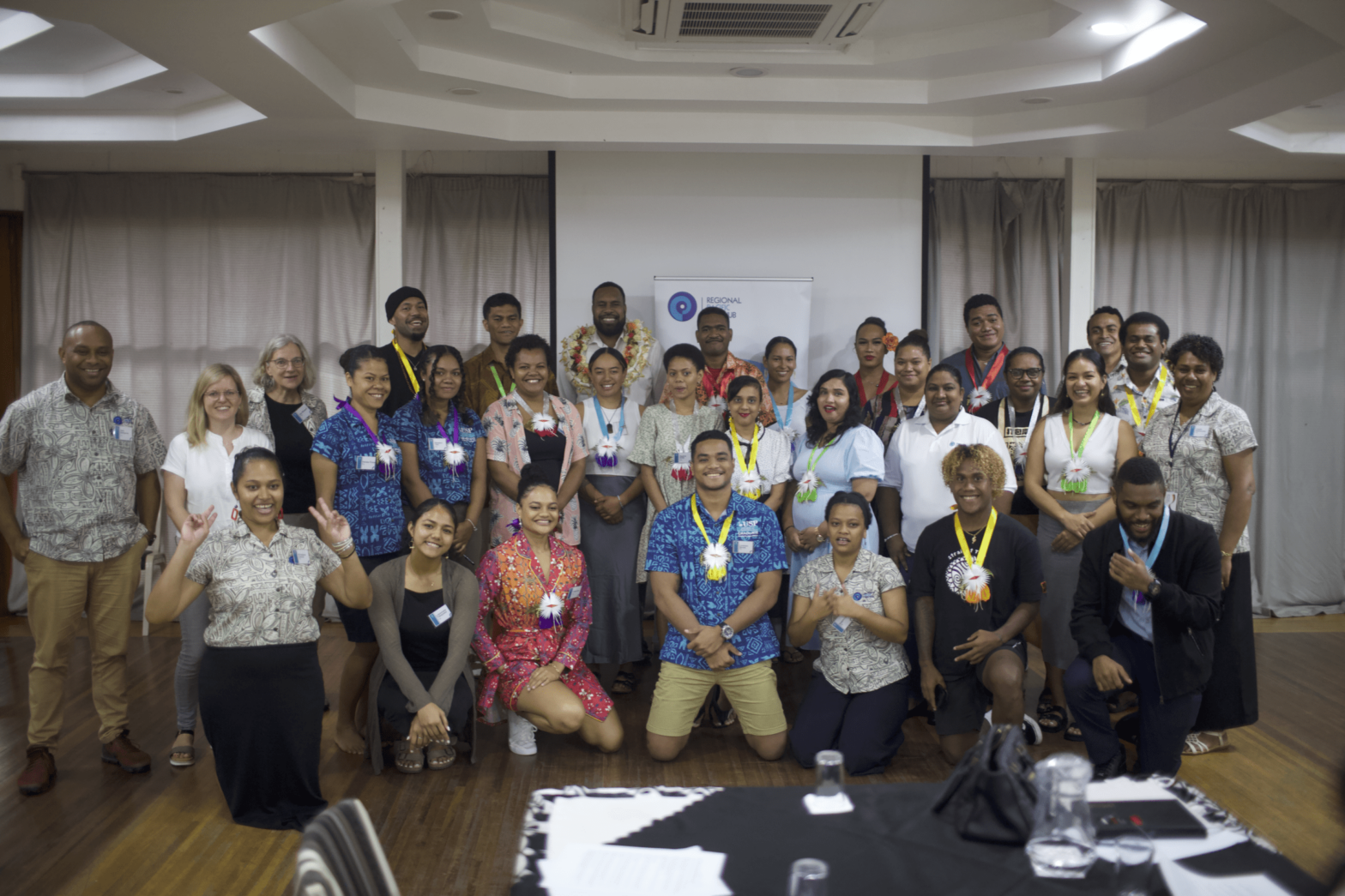AOSIS Climate lead negotiator, Anne Rasmussen of Samoa, emphasised the coalition’s vulnerability to climate change at the Sixtieth Session of the Subsidiary Bodies (SB60) of the UNFCCC in Bonn.
“SB60 began amid severe climate crises,” Rasmussen said, opening her closing remarks for the Alliance of Small Island States (AOSIS).
“Wildfires in Belize, coral bleaching worldwide, a deadly landslide in Papua New Guinea, and heatwaves in India. These events underscore the urgency of addressing climate change,” she said in her statement.
She welcomed the establishment of terms for reviewing the Warsaw International Mechanism review in Baku, aimed at addressing loss and damage.
“This review is crucial for ensuring the mechanism is fit-for-purpose to support our countries,” she said.
Addressing the stalled progress on the Research and Systematic Observation (RSO) agenda, Rasmussen expressed AOSIS’s disappointment.
“For the first time, we failed to reach an agreement on RSO,” she said.
“We wanted an appropriate reflection of the IPCC’s Seventh Assessment Cycle. The best available science must guide our actions here, and it is concerning that we did not reach substantive outcomes. We expect better results at our next session.”
Rasmussen then discussed the mixed outcomes of the session.
“We are encouraged by advancements in several agenda items,” she acknowledged.
“Draft decisions are being forwarded to the COP.” However, she noted, “Progress has been slow on critical agenda items, particularly those aimed at operationaliSing the outcomes of the first Global Stocktake (GST). This delay is problematic for our small delegations as we approach a critical COP in November.”
The session’s progress on the Mitigation Work Programme drew sharp criticism from Rasmussen.
“Instead of creating opportunities for high mitigation impact, the programme seems to be diverging from what our small islands and the global community need,” she said.
“We are extremely disappointed with the lack of results. A substantive decision that implements the GST outcomes and addresses Nationally Determined Contributions (NDCs) is essential for AOSIS. Only high mitigation ambition aligned with the 1.5°C goal will ensure our survival.”
Rasmussen also addressed the ongoing challenges with Article 6 negotiations.
“We cannot continue this cycle of endless negotiations,” she stressed.
“Clear rules for cooperative approaches that ensure transparency and environmental integrity are crucial,” she said
She did acknowledge some progress, “We made some headway this session, which should lead to more robust outcomes at COP29.”
On transparency, she noted, “Developed countries’ resistance to providing adequate financial and technical support is hampering SIDS’ ability to implement the Enhanced Transparency Framework(ETF). Swift and flexible funding is necessary for equitable inclusion in the ETF process.”
Adaptation remains a high priority for AOSIS, Rasmussen emphasised.
“For Small Island Developing States, adaptation is critical as temperatures rise. Concluding the modalities for the UAE-Belem work programme on indicators is essential. This will allow us to measure progress in adaptation action effectively.”
Regarding finance, she reiterated its importance across all thematic areas.
“Finance is crucial for progress in technology, just transition, transparency, GST, mitigation, adaptation, and loss and damage. As we work towards an agreement on the New Collective Quantified Goal (NCQG), it must be fit-for-purpose and allow full operationalisation of Article 9 of the Paris Agreement.”
Rasmussen also stressed the necessity of a robust follow-up mechanism within the GST outcome.
“The first GST is critical for maintaining the 1.5°C target.
“Its success depends on the effective implementation of all outcomes agreed upon at COP28. The NCQG must be inclusive, ensuring no party or group is left behind. Collective efforts are vital for achieving justice and effectiveness in our climate action,” said Rasmussen.




